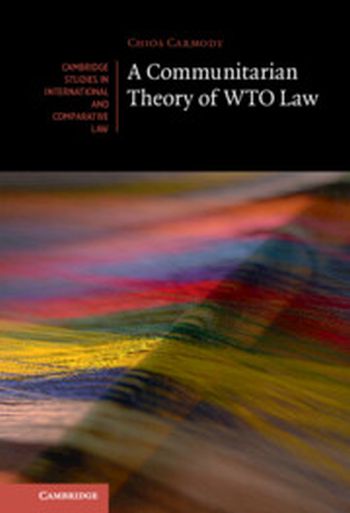
Since 1995 there has been intense debate about whether the WTO Agreement is just. Many observers point to the association of the treaty with intensive interdependence and the disruptive effects of globalization to assert that it is unjust. Nevertheless, justice in sovereign terms is different from justice in human terms. This book puts forward a theory of WTO law to explain the difference and its implications for the international trading system. It details how economic interdependence gives rise to an interdependent view of the relationship between different forms of justice and to interdependent obligations in WTO law. It also suggests how the WTO dispute settlement system might have a residual value as a locus for transformative outcomes despite contemporary concerns about the system's political acceptability. Taken together, such insights may assist in identifying elements of a general theory of law.